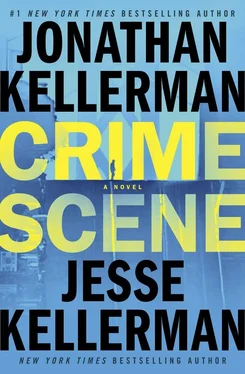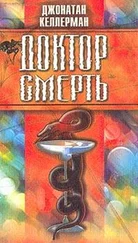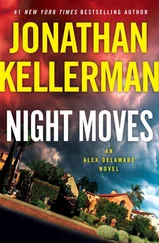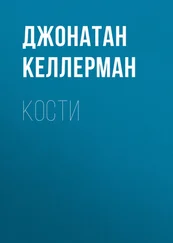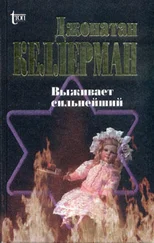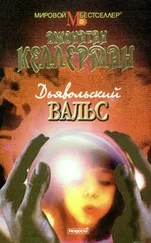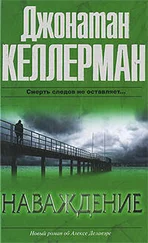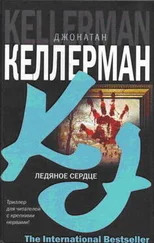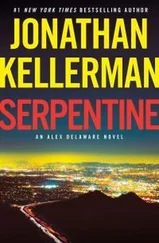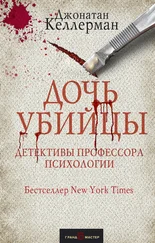Bloodbrick: 3D. The game that had started it all.
Or hadn’t, depending on who you asked.
A blue floppy disk, labeled T. Linstad had used Tetris as a control.
Next: a thin, wrinkled manila envelope containing reimbursement forms — three of them, filled out in the same, slashing hand and signed N. Linstad. The first form was for five hundred dollars, the licensing fee for using the Meeks.
The second was for several hundred dollars’ worth of cash incentives, doled out to subjects as an inducement to show up, week after week.
The third reimbursement form asked for twenty dollars for “miscellaneous expenses.” Like the other two forms, it bore Linstad’s signature. An attached receipt gave the breakdown.

I knew Sammie’s — a greasy spoon off the northwest corner of campus, known for its cheap, gargantuan portions and don’t-give-a-fuck-bout-chu waitstaff; a lowbrow bastion in a culinary landscape that got increasingly precious with every passing year. My teammates liked to go there after practice. They’d egg one another on, see who could eat the most without throwing up. Athletes will turn anything into a competition. I’d go along, not for the food, but for the sake of team unity.
Neither the reimbursement form nor the receipt indicated who the meal was for.
But I had a theory.
He said the man got him a burger.
Steak sandwich. Burger.
A reasonable enough mistake.
I slid the form into the envelope, put the envelope in the box, took the whole thing with me down to my car.
Sammie’s steak sammich had not changed in ten years, twenty years — the entirety of its sixty-seven-year existence, to judge from the black-and-white photos on the wall.
The décor consisted of rickety wooden tables and chairs, upholstered in torn yellow vinyl; a chipped Formica counter with torn blue stools; UFO-shaped ceiling pendants. The fare consisted of overlarge cuts of chewy, oily meat — pounded into submission, fried gray, and set adrift on a kaiser roll, only to be drowned in barbecue sauce.
A bell jangled as I entered, prompting the line cooks to shout, “Yo, siddown.”
At quarter to eleven in the morning, I was the sole customer. I slid onto a stool and scanned the menu board above the kitchen window, plastic letters pressed into grimy felt. Prices had risen since ninety-three. The Double Steak Sandwich Plate now ran you $11.95. At the bottom of the dessert list, below soft serve and the ubiquitous whoopie pie, block capitals declared WE CHEAT DODGERS FANS!
“Yo,” the counterman said.
“Yo,” I said. “Whoopie pie, please.”
He raised a glass cake dome. Each cookie was half a foot across. He took one off the top of the pile with his bare hand and put it on a plate. “Yo, here you go.”
“Can I get a knife, please?” I asked.
“What for.”
“This thing is huge.”
He frowned, craned to address the kitchen. “Yo,” he yelled.
“Yo,” the line cooks yelled.
“Yo, sir here wants to eat his whoopie pie with a knife.”
The line cooks booed.
The counterman turned to me. “You don’t eat no whoopie pie with no knife.”
“All right, give me an original.”
“Fries or onion rings for a dollar extra.”
“Neither.”
“Fries or rings.”
“Rings.”
“Beans or slaw.”
“Slaw,” I said. “And a knife, please.”
He scowled and put the order in. Within seconds I heard the sizzle of meat hitting the flattop. Within minutes I had before me a glorious plate of slop. The counterman set out a squeeze bottle, colored an unappetizing brown — more barbecue sauce.
“In case I get thirsty,” I said.
His face was stone.
I looked at him expectantly. He grunted and reached down and brought out a knife from behind the counter, slapping it down in front of me.
It was a big honking thing, heavy-duty black plastic handle and a thick-spined, serrated blade about four inches long. The teeth were worn down with use but the tip still looked menacingly sharp. You needed such a weapon to vanquish a Sammie’s Steak Sandwich. They put up a fight.
I said to the counterman, “You always use these same knives?”
“What?”
“The knives. Are they the same brand you were using, say, twenty years ago?”
“Yo, I look like I worked here twenty years?”
“Ask them,” I said, pointing to the cooks in the kitchen.
“Man, they don’t know.”
“Is there a manager around?”
“Me.”
I’d recheck the murder file, but to my eye the knife was an exact match for the one recovered from a garbage can on the corner of Dwight and Telegraph, wrapped in a bloody gray sweatshirt and stuffed in a plastic bag.
I raised my phone to take a picture of it.
“Yo,” the counterman said. “No pictures.”
He pointed to a sign on the wall that read NO PICTURES.
I asked for a to-go box.
“Yo, you didn’t eat nothing.”
“I need to go.”
“Then why didn’t you say to go. ”
I’d had enough of this. I put my badge on the counter. “Yo. Box, please.”
He fetched it quick, transferred the food from my plate.
I held up my unused knife. “And I need to borrow this for a little.”
“Yo,” he said, breaking off uncertainly.
When in doubt, be tall. I stood up, spread my hands on the Formica, loomed. “Yes?”
“Yeah, boss,” he said, “no problem at all.”
The Berkeley PD station was six blocks away. On the walk over I bit into my sandwich. It tasted like buffalo hide. I got through a quarter of it before dumping it in the trash.
I didn’t go in the building. I didn’t know what the situation was with Schickman — how much static I’d caused him, how lightly he had to tread. From half a block away, on Allston, I texted him. Fifteen minutes later he jogged up.
“Need to be quick,” he said. “What’s going on?”
I showed him the reimbursement form, the receipt, the knife.
“We were wondering how Linstad got Triplett’s fingerprint on the murder weapon,” I said. “That’s how.”
“Could mean the opposite: Triplett took the knife on his own.”
“You don’t think it’s interesting?”
He grinned. “Like I said. Interesting.”
“Check out the date on the receipt,” I said.
He stared. “October thirty-first.”
I nodded. “Day of the murder. Less than twelve hours prior. Wrap the handle in something,” I said, “keep the print nice and fresh. For all we know, the knife you have in evidence isn’t the real murder weapon. If Linstad was smart, he ditched it someplace far away and planted the one with the print.”
Schickman continued to study the receipt. “Why would he put in for reimbursement?”
“Because he’s a cheap bastard who couldn’t help himself,” I said. “He wanted his twenty bucks back.”
“He tipped seventy-five cents on a nineteen-dollar bill.”
“Add it to a growing list of character flaws,” I said.
Schickman laughed.
“So?” I said. “This change your mind any?”
“You are one persistent son of a bitch,” he said.
He took the knife from me. “Let me compare it with the one in evidence.”
“That’s all I ask,” I said.
“Whatever I decide to do — and I’m not deciding anything yet — we need to keep it on the DL, all right? Least till we have more.”
“Understood. I’m back at the Coroner’s starting tomorrow.”
He held the knife up. “I need to return this when I’m done?”
Читать дальше
